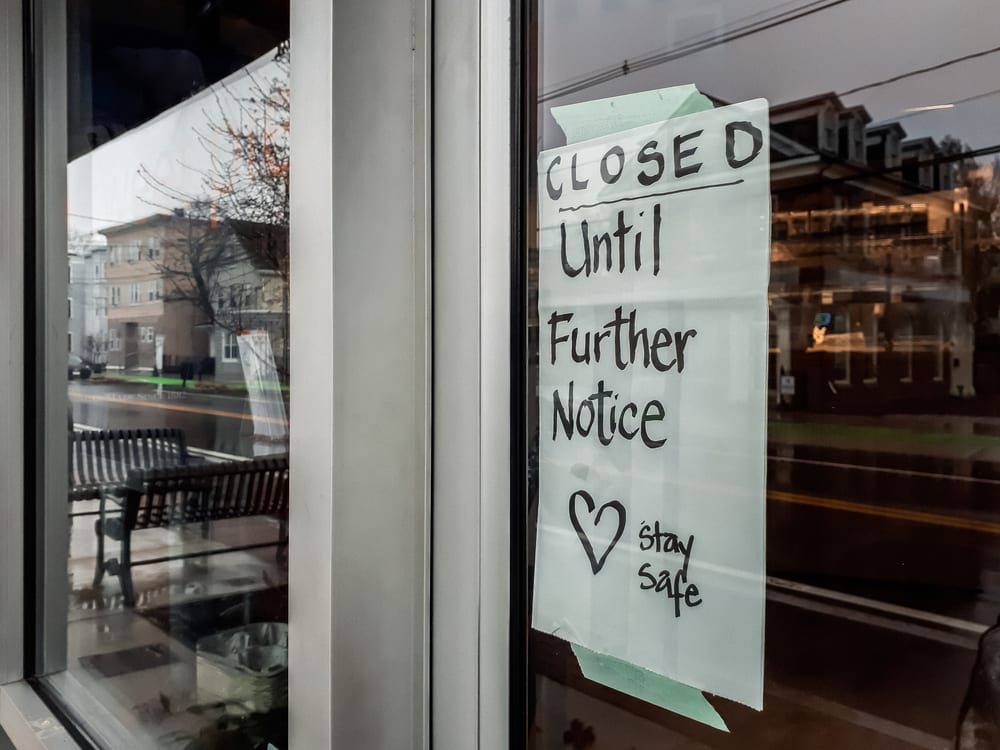
Latest
Government must “act now” as unemployment rate soars to highest level for more than four years
5 years ago

The UK’s unemployment rate has soared to its highest level for more than four years with official figures showing nearly 830,000 workers have been dropped from UK payrolls since the start of the pandemic.
The Office for National Statistics revealed the unemployment rate reached 5% in the three months to November for the first time since early 2016 after another 202,000 people lost their jobs.
Figures for December also showed there were 828,000 fewer Britons on company payrolls since before the crisis struck last February as the pandemic has hammered the jobs market.
Experts warned that there would be further pain to come after the latest lockdown rips through the labour market.
ONS head of economic statistics Sam Beckett said:
“In the three months to November, on our survey data, the employment rate fell sharply again, while the unemployment rate rose to hit 5% for the first time in over four years.
“The number of people saying they had been made redundant in the previous three months remains at a record high.
“Meanwhile, vacancies, which were rising in summer and early autumn, have been falling in the last couple of months.”
Our latest labour market statistics have been published https://t.co/SjrYPgXa0e pic.twitter.com/tCrBpXLnkI
— Office for National Statistics (ONS) (@ONS) January 26, 2021
The gloomy unemployment figures come despite signs that the Government’s move to extend the furlough scheme to April has helped cushion the blow.
The number of payroll employees nudged up by 0.2% between November and December, with employment also falling at its slowest pace since March, down 88,000 at 32.5 million.
But there was little cheer in the data as the claimant count, which includes people working with low income and hours as well as people who are not working, edged up by 0.3% in December to 2.6 million.
The redundancy rate hit another record high, up 168,000 between September and November to 395,000, though it dropped slightly from a peak in September.

The early recovery in vacancies seen in the summer also slowed, with around 81,000 between October and December at 578,000 – half the level of growth in the previous three months.
Business leaders reiterated calls to Chancellor Rishi Sunak to extend support measures further to help sectors on life support during the lockdown, such as the hospitality industry and high street.
On Monday alone, more than a further 20,000 retail jobs were put at risk after online retailer Boohoo announced a deal to buy the Debenhams brand and rival Asos said it was poised to buy Topshop.
Tej Parikh, chief economist at the Institute of Directors, said:
“It is now crucial that the Job Retention Scheme and other Covid-19 economic support is extended beyond the spring to support employment as restrictions continue.
“The latest lockdown will have only added further pressure on firms with troubled balance sheets, which means more jobs are likely to be lost in the coming months.”
Matthew Percival, director of people and skills at the CBI business group, said the Chancellor must “act now”.
“The Job Retention Scheme needs to run to at least the end of June to avoid a cliff-edge,” he said.
Employment Minister Mims Davies said: “Whilst there is light at the end of the tunnel with jabs already in the arms of millions and the vaccine rollout gathering pace, our Plan for Jobs is helping to protect and support livelihoods, as well as create new opportunities for those who need them.”









 Subscribe
Subscribe Follow Us
Follow Us Follow Us
Follow Us Follow Us
Follow Us Follow Us
Follow Us Follow Us
Follow Us











